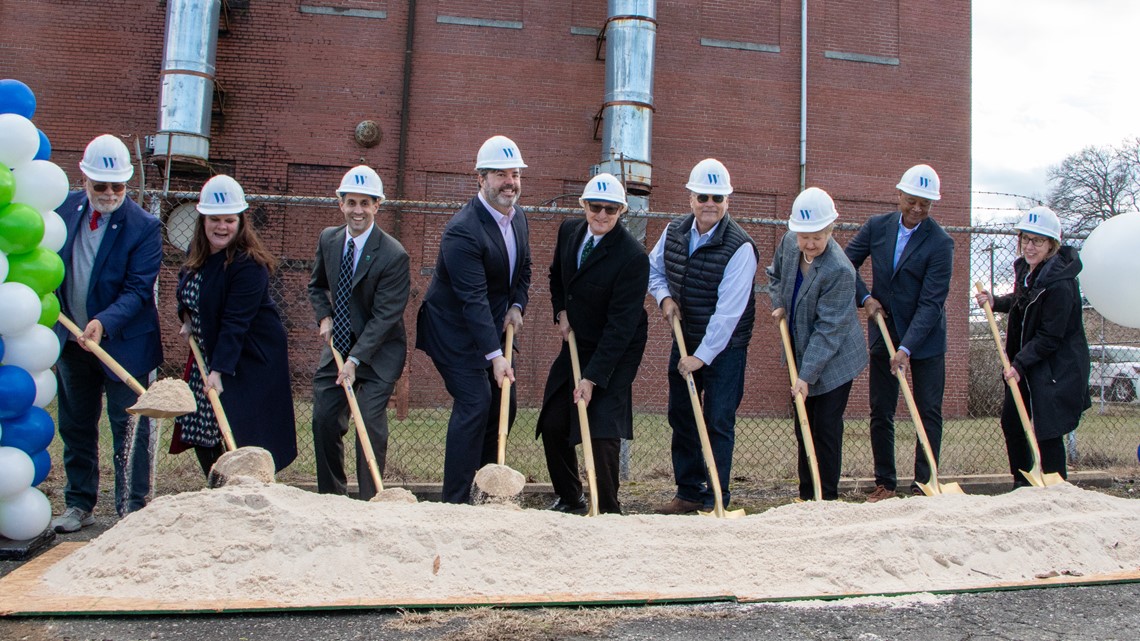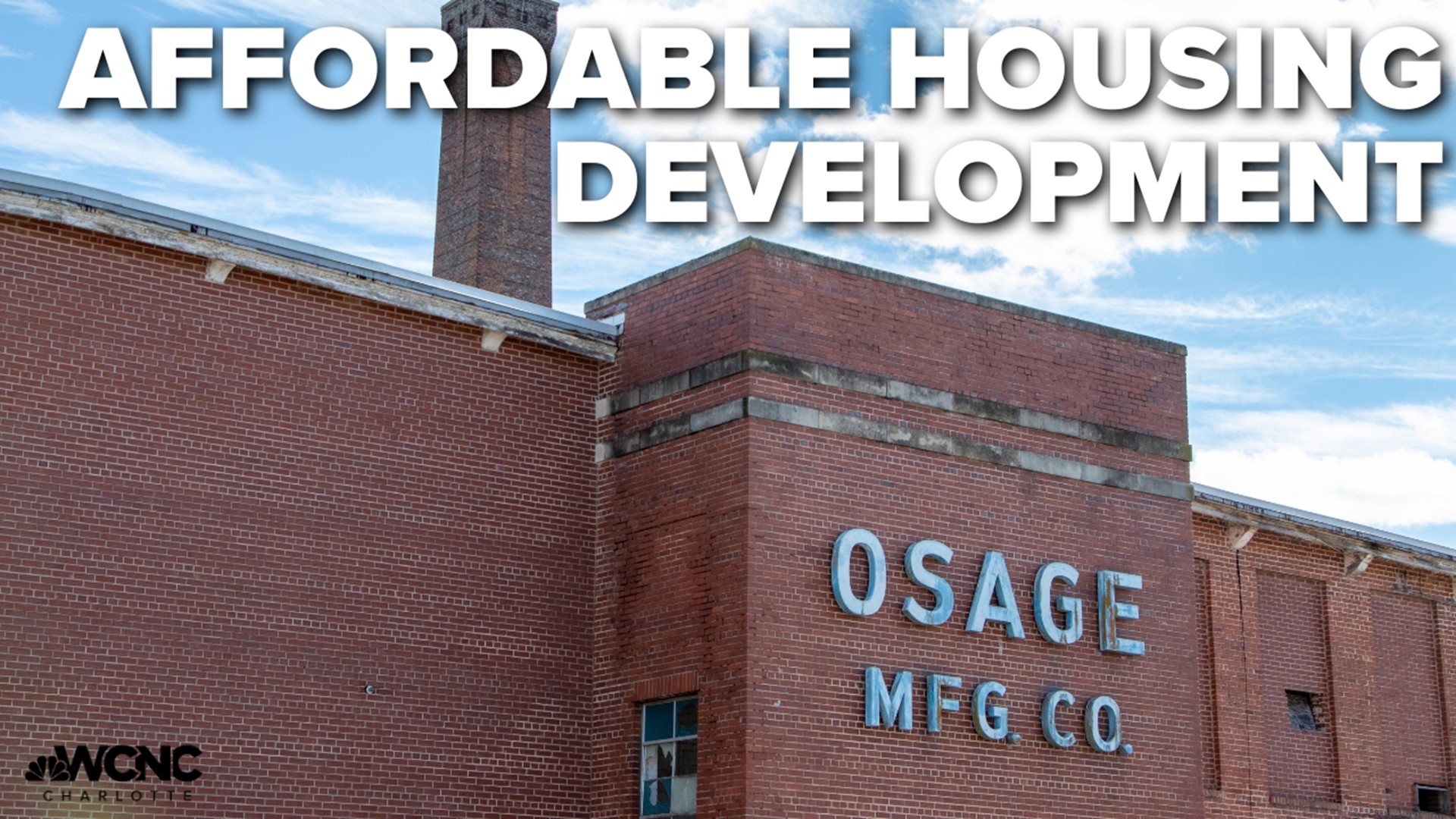BESSEMER CITY, N.C. — John Askew Smith not only founded the town of Bessemer City in 1893, but he also built the Osage Mill just three years later, quickly becoming one of the largest textile mills in town. About a century after the mill went up, the 250,000-square-foot building went largely vacant in 1995.
Now, it's getting new life after three decades of sitting empty. And just like how it provided jobs to residents at the end of one era, it's now slated to provide affordable housing in this one.
WinnCompanies announced Thursday that ground had been broken for what it calls an adaptive reuse project. The $35 million undertaking will see Osage Mill become home to 139 affordable apartment units. Of those units, 50 will be one-bedroom units, 77 will be two-bedroom homes, and 12 will be three-bedroom apartments.
Residents who earn 60% of the Area Median Income will be eligible for residency. The project is expected to be completed by the end of 2024.
“Bessemer City is ready to excel our economic position in the Charlotte Region with the completion of the Osage Mill Renovation Project This project will amplify our community’s position for positive growth, assist with supporting local small businesses, and provide needed housing for our ever-growing workforce with other multi-million-dollar investments taking place," said town mayor Becky Smith. “Bessemer City is growing in a positive way in all directions. This project specifically will act as a catalyst that will transform the community and revive a historic landmark that speaks to the City’s history, culture, and identity. The city is only getting started with revitalization.”
The project's financing was supported by tax-exempt bonds from the North Carolina Housing Finance Agency (NCHFA) and issued by the Gastonia Housing Authority. NCHFA executive director Scott Farmer lauded the promise of the renovation.
“This development serves as a prime example of how adaptive reuse of existing sites can create safe and affordable homes for families in North Carolina," he said.


Additionally, Bank of America is providing construction and permanent financing, along with equity under the federal Low-Income Housing Tax Credit program, the federal Historic Tax Credit program, and North Carolina's Mill Rehabilitation Tax Credit Program.
“Bank of America is proud to be the lead financer of this innovative development that repurposes previously vacant space to provide much-needed affordable housing in greater Charlotte,” said Mary Thompson, Senior Vice President of Community Development Banking at Bank of America. “We are pleased to work with WinnCompanies, and our other public and private partners, to help support the communities where we work and live.”
While this is WinnCompanies' first adaptive reuse project in the Tar Heel State, the Boston-founded group is no stranger to such work. Since 1981, the company has helmed 41 similar projects, creating nearly 5,000 new apartments across seven states and in the District of Columbia.
WinnCompanies says the mill's renovation will preserve and highlight its history. In addition to the apartment units, the Osage Mill will feature an on-site management office, mail room with package lockers, a resident lounge, a fitness room, a business center, and secured storage. A dog park, children's playground, and outdoor picnic area are also included. 244 parking spaces will be offered, including 20 spaces for disabled residents.
“Not only will this project preserve an important historic structure and revitalize the downtown area of Bessemer City, but it will also provide homes for the elderly, the disabled, and working families in our area," said Terri Sanford, executive director of the Gastonia Housing Authority. "We are grateful to the developers, the City of Bessemer City and the City of Gastonia elected officials and staff, and to all others who have worked tirelessly to bring this project to fruition.”
WCNC Charlotte is part of seven major media companies and other local institutions producing I Can’t Afford to Live Here, a collaborative reporting project focused on solutions to the affordable housing crisis in Charlotte. It is a project of the Charlotte Journalism Collaborative, which is supported by the Local Media Project, an initiative launched by the Solutions Journalism Network with support from the Knight Foundation to strengthen and reinvigorate local media ecosystems. See all of our reporting at charlottejournalism.org.
HOME ASSISTANCE PROGRAMS IN CHARLOTTE

